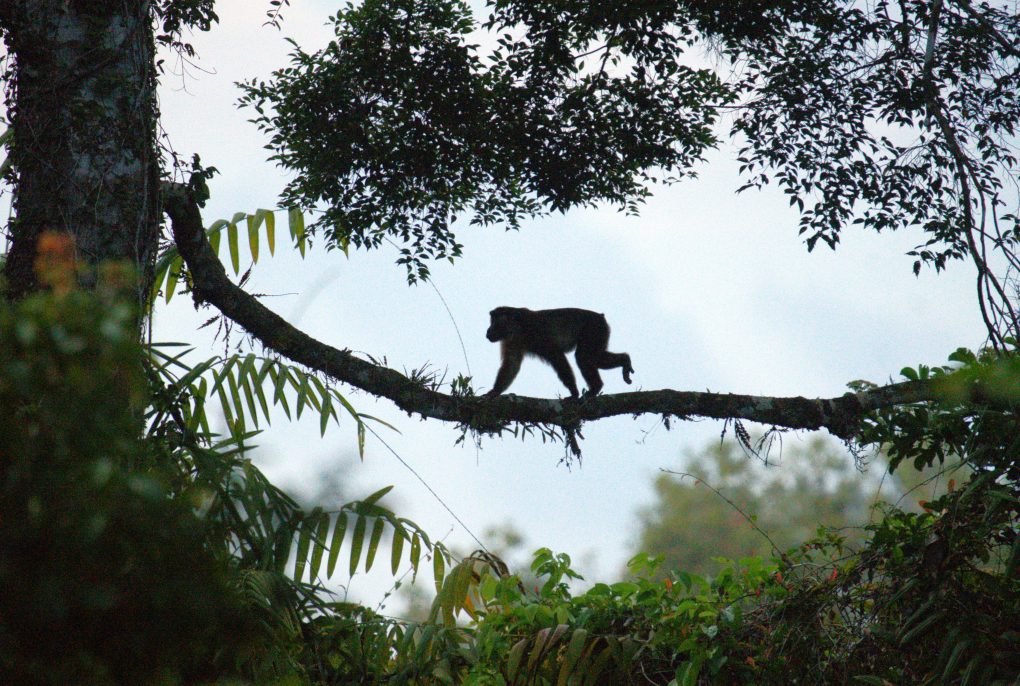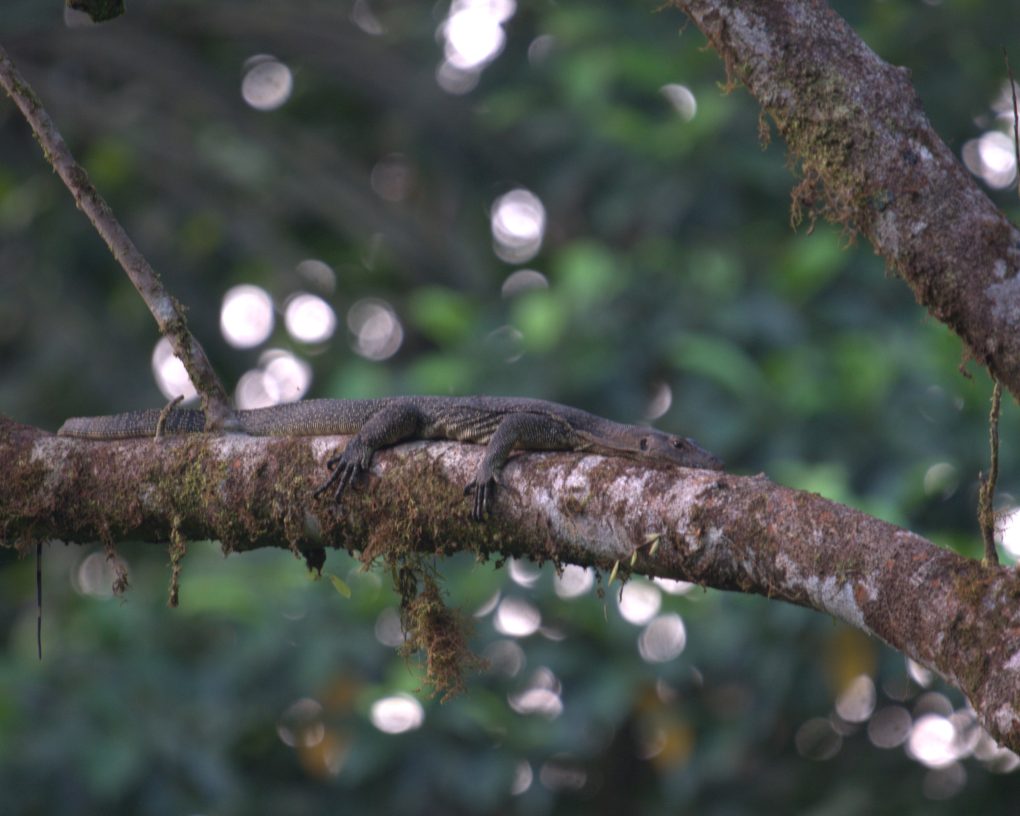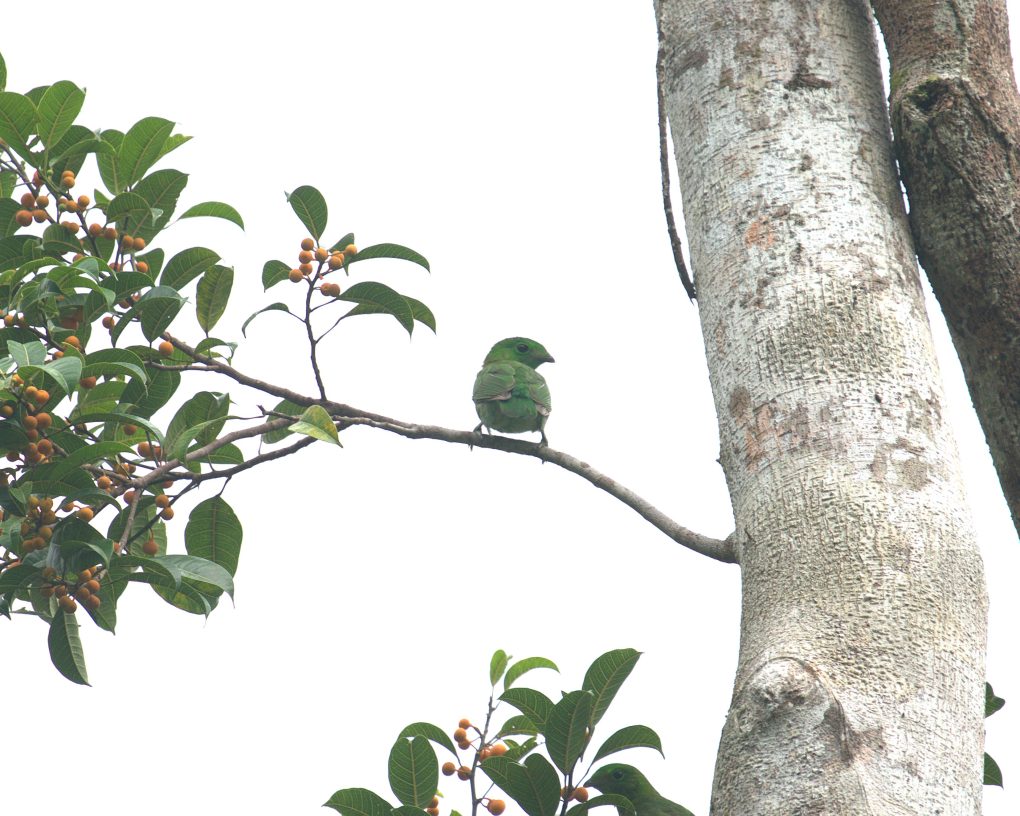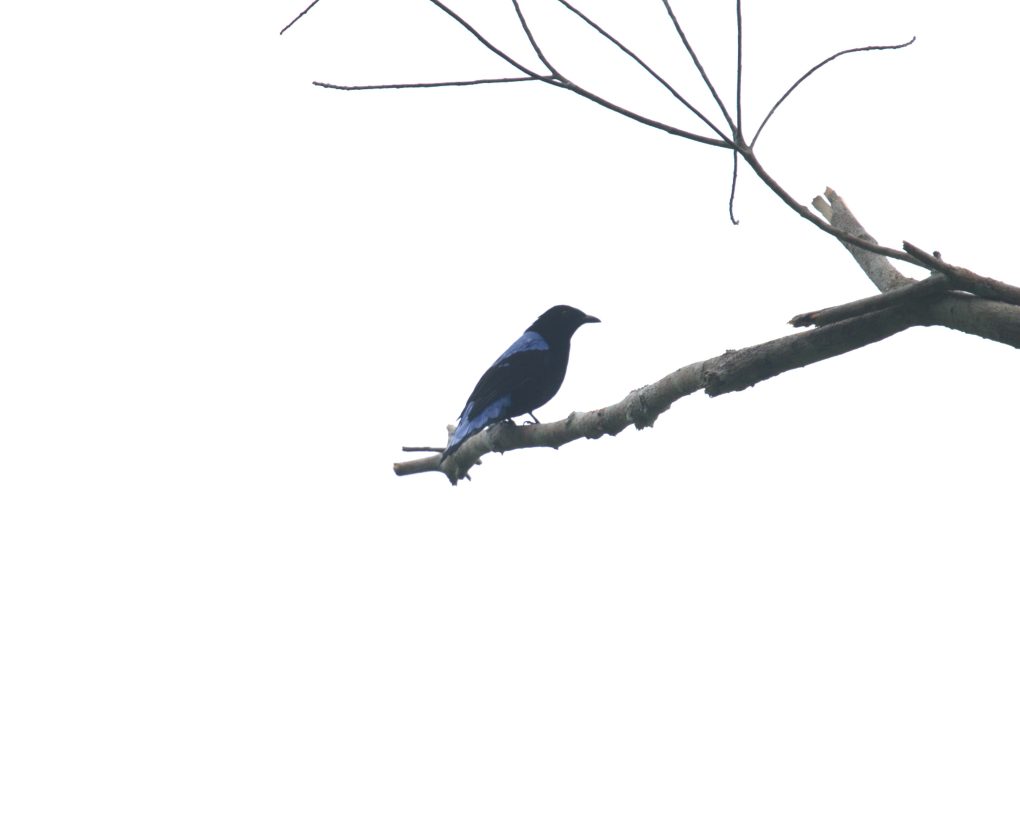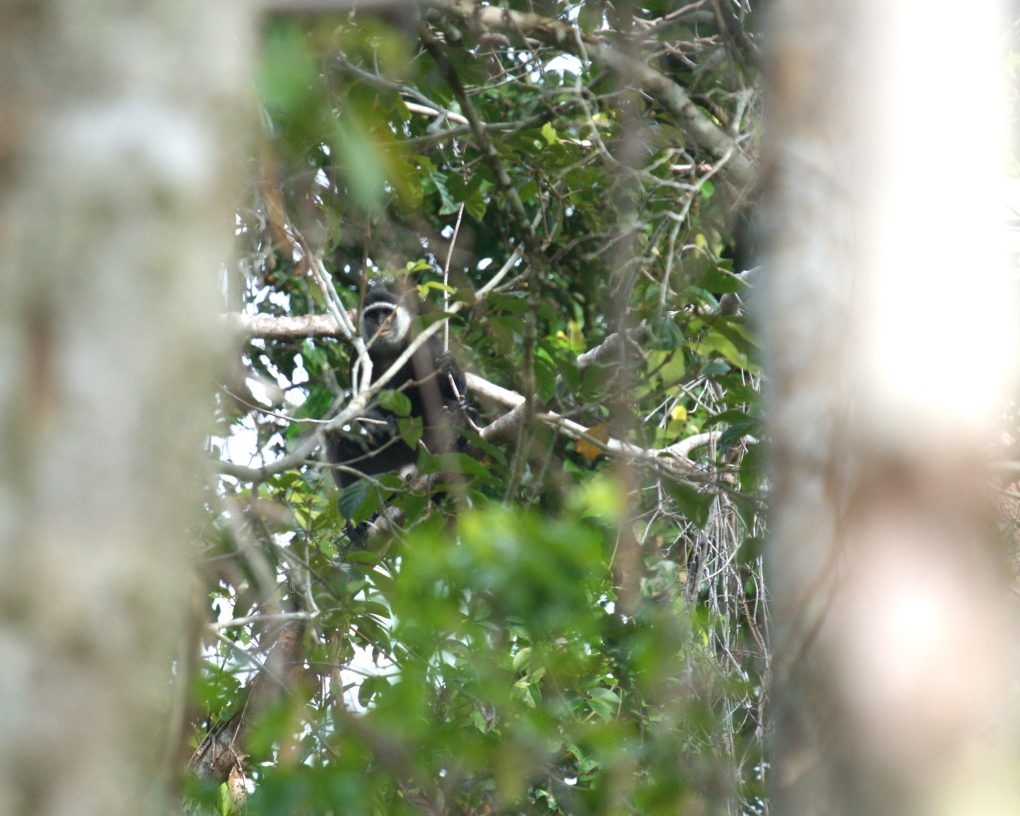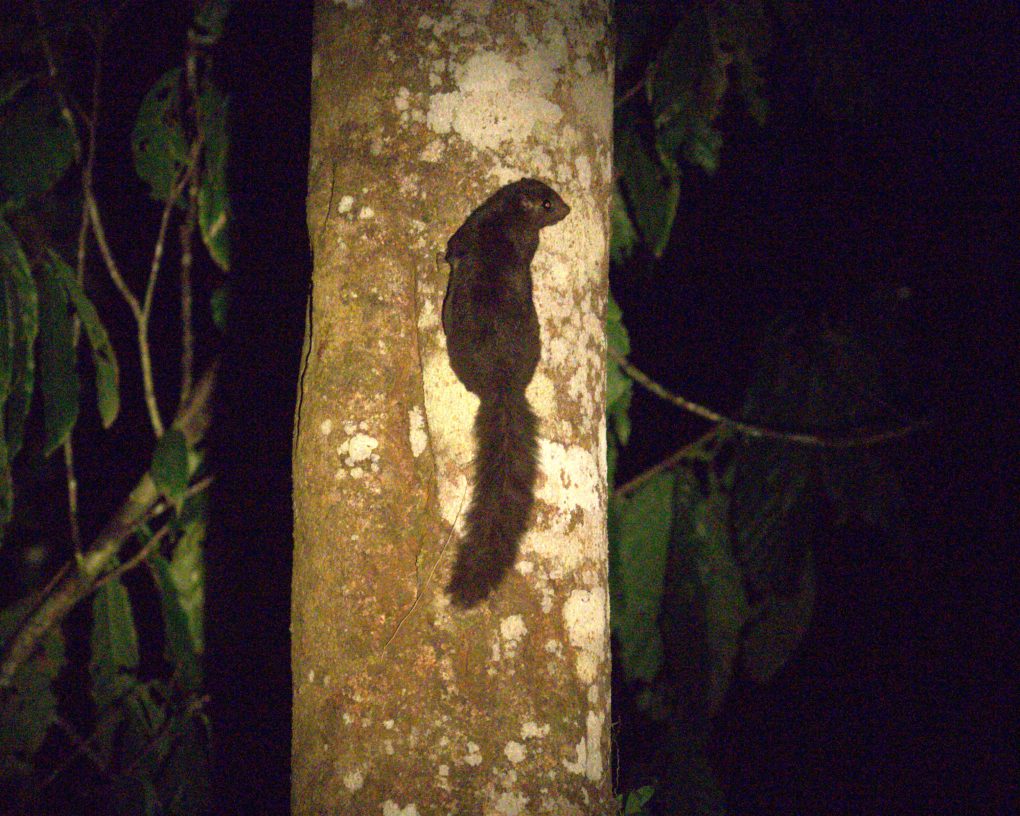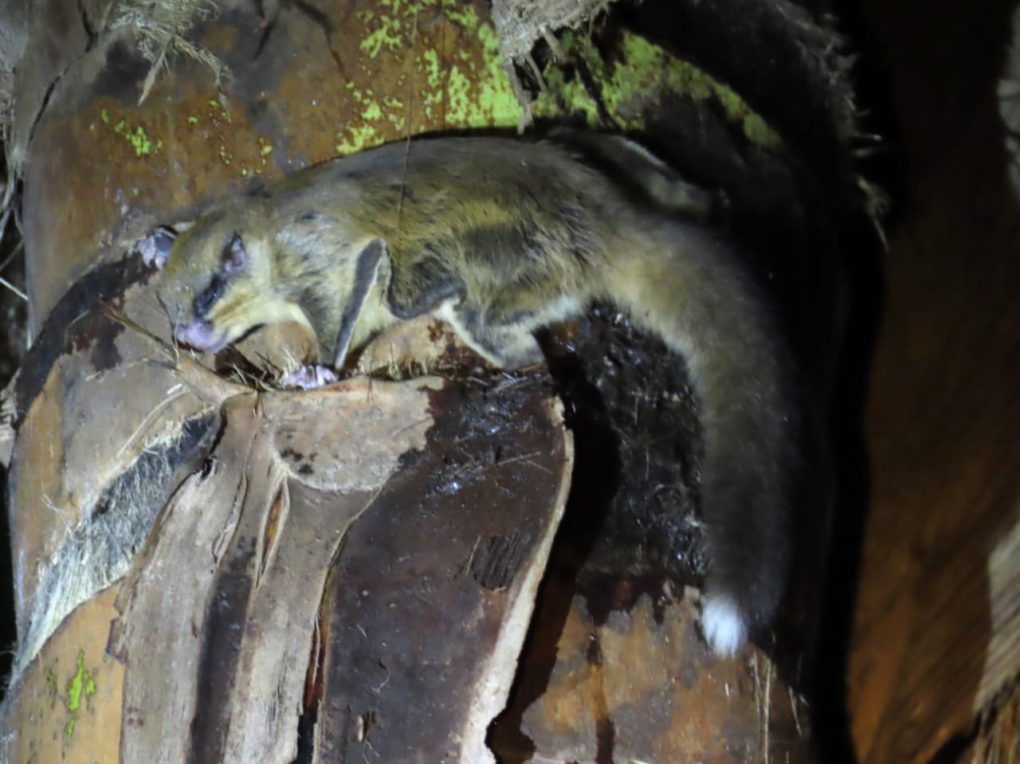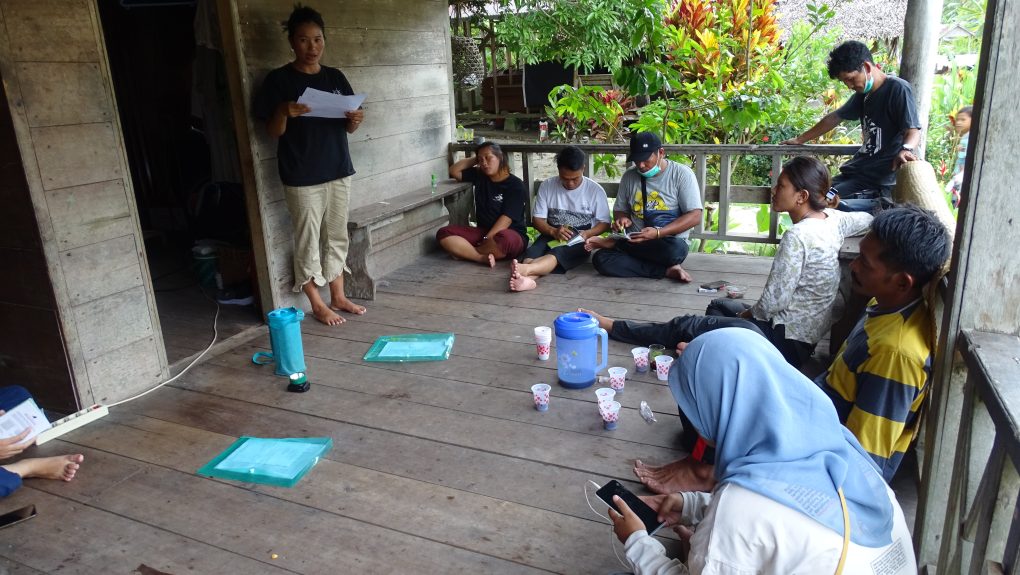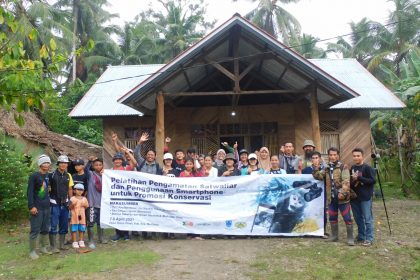by Arif Setiawan
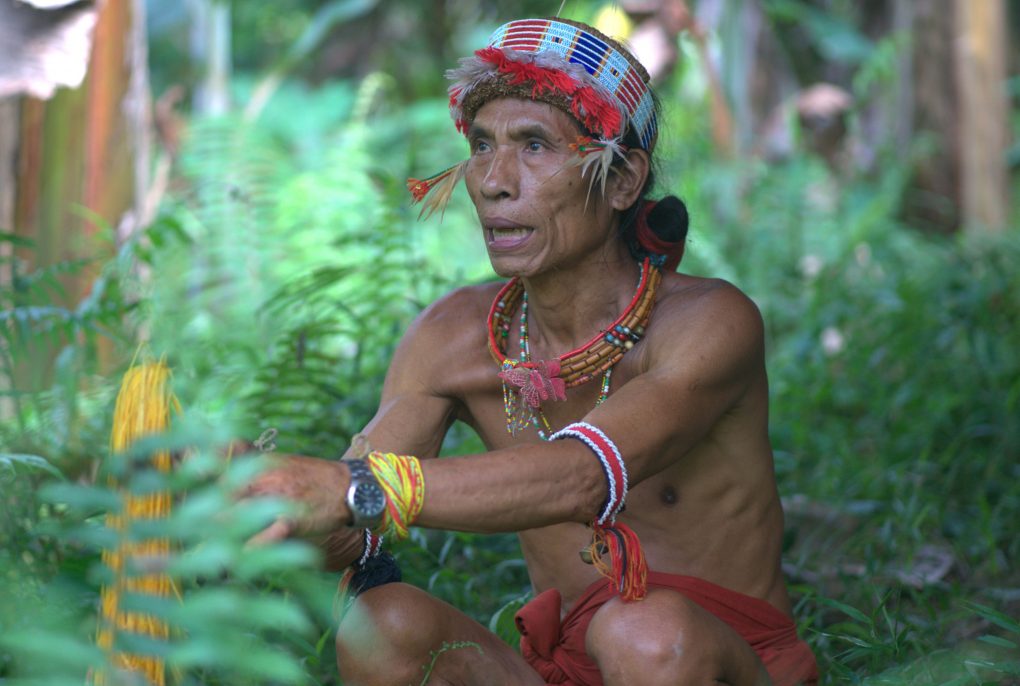
a sikerei, mentawai shaman, spiritual leader, healer and mediator between physical and spiritual world
Located in Malinggai Uma, South of Siberut, the traditional stilt house measuring 25 meters x 12 meters appeared crowded. The extended Tateburuk clan gathered at Uma, with around 200 families present. Including small children, there were likely over 400 people. This Punen Eeruk was considered a large ceremony because it did not conclude in a single day. The significant involvement of tribe members and their sacrifices included approximately 13 pigs and 200 chickens. The women were also very busy in the kitchen, cooking taro and sago in bamboo, preparing meals for everyone present.
Sikereis prays for sacrifice animals
This Punen eeruk aimed to “pacify” the spirits of the deceased. The belief in spirits or souls within every object remains deeply ingrained in the Mentawai community, especially in Siberut. The Arat Sabulungan belief holds that nearly every place and object, every animal, every plant, and every natural phenomenon possesses awareness and feelings and can communicate directly with humans. This Punen can also be described as a farewell party for the spirits of the deceased, marking the end of the mourning period. It is the final celebration as an eternal farewell between the spirits and their families, accompanying and praying for the safety and happiness of those left behind, ensuring they are free from all difficulties and dangers. This relationship is relatively complex but can be understood, and there are those who can assist in communicating with these non-material entities, namely the “Sikerei.” They can all communicate through the intermediaries of dance, song, sacrificed animals, or ceremonies.
peforming gibbon dance during Punen Eeruk, in Uma (long house) a sacred farwell in Mentawai tradition
Through dances accompanied by the beating of drums, the ringing of bells, and the stomping of feet on wooden floors, a harmonization of movements and sounds full of magical and emotional nuances is created. The bilou dance, uliat bilou, becomes both entertainment and a communication medium, telling stories of several Bilou joyfully playing in the forest. The sikeerei’s voice also emerges softly, imitating the call of the bilou on a bright morning.
Efforts to preserve natural knowledge, enrich culture and its content, especially in Mentawai, become a challenge of their own. This identity might only be a mere romanticism, with the unique nature and culture only beautiful in reports and writings while extinction continues to occur on a micro scale. The messages implied in this ceremony should be a reflection continuously conveyed to the current generation that the history of nature heavily depends on humans. We can harm, damage, or eradicate our natural culture, but we are also endowed with intellect, energy, and perfect communication abilities to manage nature wisely.


